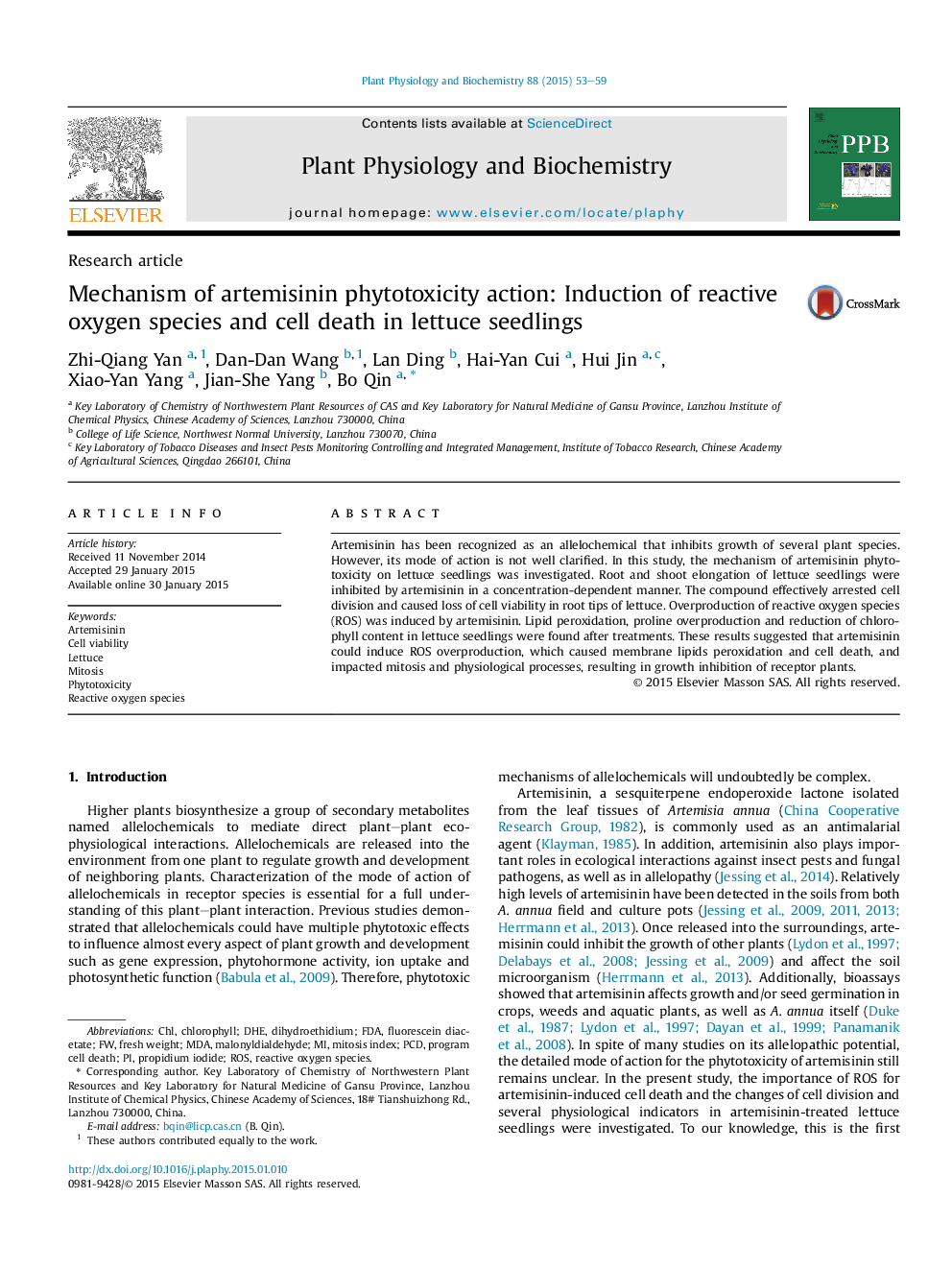| Article ID | Journal | Published Year | Pages | File Type |
|---|---|---|---|---|
| 2016007 | Plant Physiology and Biochemistry | 2015 | 7 Pages |
•Artemisinin inhibits root and shoot elongation of lettuce seedlings.•Artemisinin induces ROS overproduction and lipid peroxidation.•Artemisinin causes cell cycle arrest and cell viability loss.•Proline and chlorophyll levels are influenced by artemisinin.
Artemisinin has been recognized as an allelochemical that inhibits growth of several plant species. However, its mode of action is not well clarified. In this study, the mechanism of artemisinin phytotoxicity on lettuce seedlings was investigated. Root and shoot elongation of lettuce seedlings were inhibited by artemisinin in a concentration-dependent manner. The compound effectively arrested cell division and caused loss of cell viability in root tips of lettuce. Overproduction of reactive oxygen species (ROS) was induced by artemisinin. Lipid peroxidation, proline overproduction and reduction of chlorophyll content in lettuce seedlings were found after treatments. These results suggested that artemisinin could induce ROS overproduction, which caused membrane lipids peroxidation and cell death, and impacted mitosis and physiological processes, resulting in growth inhibition of receptor plants.
